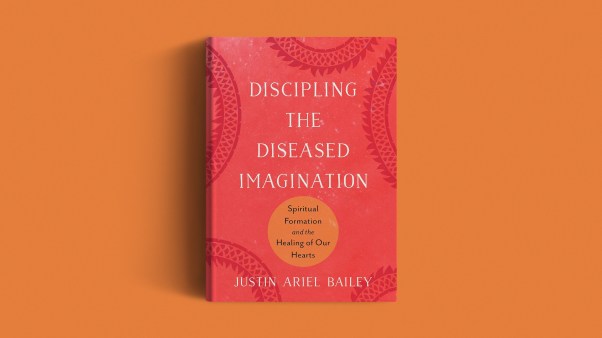Last year, Colin Farrell played a man stuck in a Phone Booth desperately trying to save innocent people from a sniper. Now, Chris Evans, William H. Macy, and Kim Basinger star in a variation on the same idea. In Cellular, Evans plays Ryan, a young man who receives a random distress call from a kidnapped woman (Basinger), who begs him to help her. Ryan proceeds to use his versatile little phone for clever endeavors to try and save her and her family. It sounds like little more than a clever, feature-length marketing ploy. But critics seem to be enjoying the film, even if they admit that it’s rather shallow fun.
Michael Elliott (Movie Parables) calls it “an entertaining though largely implausible action/adventure film. Though flawed in its logic and plausibility, it is nonetheless clever in how it incorporates all the features and frustrations that cell phone users know all too well: Loss of signal strength, dying batteries, call waiting, and crossed lines all become inconveniences that take on life or death meaning as Ryan frantically tries to keep Jessica on the line.”
Agnieszka Tennant (Christianity Today Movies) writes, “Neither Macy nor Basinger nor the intriguing setup nor the bursts of situational wit can rescue David R. Ellis’s action thriller from joining the category of movies that are so bad they’re good. I guess one can put it in more encouraging terms: it’s a good bad movie.”
“Cellular is a smart, funny, fast-paced thriller,” says Tom Neven (Plugged In). “It contains positive messages about the strength of family, a mother’s love and courageously helping total strangers, even at great personal risk. Unfortunately, a little sexual humor, a gusher of foul language and some explicit violence will probably cause many to hang up on this effort.”
Mainstream critics aren’t terribly impressed, but they’re giving the film good marks compared to several other new releases.
Resident Evil sequel is an apocalyptic disaster
Paul W.S. Anderson, director of this year’s much-maligned sci-fi fiasco Alien Vs. Predator, was responsible for the first big screen adaptation of the video game Resident Evil. Milla Jovovich and Michelle Rodriguez starred in the flick, and Jovovich is back now for a sequel, written by Anderson but directed by newcomer Alexander Witt.
Resident Evil: Apocalypse concerns a woman (Jovovich) trying to deal with great civil unrest—think zombies, mutants, and rampaging monsters—in a place called Raccoon City. Suffice it to say that her methods favor heavy artillery over diplomacy.
Some moviegoers are actually having a good time chuckling at the sheer lunacy of its indulgent, illogical, hyperviolent spectacle. But religious press film critics stopped just short of calling the film a sign of the pending apocalypse.
Bob Smithouser (Plugged In) calls it “a dumb, obnoxious horror film. Hunting for subtext amongst the explicit content would be like fishing a penny out of a public toilet. What makes matters worse, the ending leaves things wide open for yet another sequel.”
Peter T. Chattaway (Christianity Today Movies) recommends you wait for a different Zombie movie: “For a brand-new zombie movie that is more emotionally involving and a heck of a lot funnier, you’d be better off watching the British import Shaun of the Dead; it proves that just because a film is about the undead, that doesn’t mean the film itself has to feel like it was made by the undead or for the undead.”
David DiCerto (Catholic News Service) says this is an “apocalyptically preposterous and unremittingly violent sequel. This Dawn of the Dead clone is devoid of anything remotely resembling narrative, character development or redeeming moral value. Instead, Witt opts for nonstop, lavishly violent action sequences—including one in a church—which ultimately go nowhere, and are as tedious as they are gratuitous.”
Mainstream critics used the film for target practice.
Moviegoers, however, reveled in the inanity and made the film a box office champion. Who can blame the movie business for turning out films like this when ticket-buyers make it clear that this is what they really want to see?
Criminal: a remake of Nine Queens … already!
The Argentinean crime caper Nine Queens earned good reviews in 2001 when it was released in the U.S. Most successful foreign films get remade by American filmmakers, but few remakes have been put together so quickly. Gregory Jacobs’ Criminal is here, already.
John C. Reilly (Chicago, Magnolia) plays the lead role of Richard Gaddis, a mastermind scam artist, and Diego Luna (Y Tu Mama Tambien, The Terminal) plays his apprentice. Maggie Gyllenhaal (Secretary, Donnie Darko) plays Richard’s sister, who draws him into a dangerous and lucrative new gamble.
David DiCerto (Catholic News Service) says, “Criminal falls short of the bar set by the original and offers little in the way of surprises for those already familiar with Nine Queens. Still, Jacobs keeps the film moving at a brisk pace, its shell-game narrative providing enough double-dealing plot twists to keep the audience guessing about who’s conning whom—even though realizing all the while that they’re the ones being taken for the ride.” He adds that viewers will face “the dilemma of having to ‘root’ for criminals.”
“The film is a real treat to watch,” says Jonathan Rodriguez (Christian Spotlight). “It gets the viewer interested early on, and keeps our interest as the plot unfolds, sometimes in ways we didn’t see coming. Once the film is over and the viewer is forced to think back for clues, a relatively convenient plot twist is revealed. Conveniences have a tendency to discredit some films, but because the rest of Criminal is so strong, they are easy to overlook.”
Less impressed, Annabelle Robertson (Crosswalk) says that “incongruities—which mount, at the end of the film—make the characters feel one-dimensional. It’s a familiar take on the ‘honor among thieves’ cliché which feels satisfying at first, until you realize that the comeuppance only comes at the price of an even bigger con.” She suggests that viewers follow a viewing by discussing “what it means to ‘be as wise as serpents but as gentle as doves’ when it comes to trusting strangers, how easy it is to be deceived, and the isolation that dishonesty inevitably brings.”
Mainstream critics rate it fairly well.
George Lucas revises his first feature film
Restoring the visuals to pristine, powerful imagery, enhancing them with elaborate digital effects, and remastering the timeworn soundtrack, George Lucas has turned his 1971 sci-fi “art” film THX 1138 into a compelling new big screen experience.
But Star Wars fans might want to think twice before hurrying out to catch a screening—and they should definitely not take their kids. This is a film for mature, discerning viewers who can weather its bleak and oppressive vision of an Orwellian future.
THX 1138 is the name of the character played by Robert Duvall, who gives an impressive performance here as a troubled robot-factory worker, burdened by the drugs that the oppressive government employs to manipulate him and his fellow citizens. Tormented by the effects of the drugs and struggling with his lack of privacy, he seeks refuge in an illegal romance with his cell “mate.” For this, he does prison time with detainees who are crazy, terrified, dangerous, or—worst of all—philosophical. The company there proves intolerable, so he sets out to escape.
Lucas has done a fantastic job of improving a harsh, challenging, bewildering film into a much more convincing and fascinating spectacle. Unfortunately, the story remains poorly developed, and the conclusion is abrupt and rather unsatisfying. It’s a science fiction oddity that only die-hard fans of the genre will find worthwhile. (My full review is at Looking Closer.)
Russ Breimeier (Christianity Today Movies) sums up the film saying, “There’s no question that George Lucas has succeeded here in restoring THX 1138 for a new generation. Enhancing the film’s vision, message, drama, and humor with special effects and a clearer presentation, he’s turned something that was relatively unwatchable (by today’s cinematic standards) into something that can easily endure as a sci-fi classic for many years.”
He also cautions “family-minded audiences” that the film is rated R for sexuality and nudity. “Many of today’s PG-13 films are more explicit and gratuitous than this. Though a lot of skin is shown, it’s less titillating than it is ‘Eden like,’ contrasting human intimacy with the world in which they live.”
Mainstream critics are impressed with Lucas’s restoration and revisions.
What the #$*! Do We Know? is as misguided as its title
What the #$*! Do We Know? combines documentary tactics with narrative and sprinkles the result with special effects and animation to give audiences a mind-bending trip. In doing so, they attempt to convince viewers that the study of quantum physics leads us to the discovery that there is no real right and wrong — except that religion is wrong and just about anything else is right.
Amanda (Marlee Matlin) plays a woman who has a “through the looking glass” experience when her daily routine begins to fall apart. She is confronted with the volatile world of quantum physics at work behind familiar realities. And the movie would have us believe that these phenomena lead to the de-bunking of religion, that morality is proven to be an illusion, and that human beings are, in fact, gods in the making. Real truth, it seems, comes from a woman who is supposedly channeling an ancient being from Atlantis.
As you can imagine, the few religious press critics that have bothered to spend time with this nonsense point out its obvious flaws and dismiss its rather ludicrous agenda.
Denny Wayman and Hal Conklin (Cinema in Focus) offer this critique: “Not only is fact woven with fiction, as shown by the film’s combining of science with science fiction, philosophy with new age religion, and psychiatry with occult channeling, but we also have a documentary woven with a drama. The end product is an amalgam that is novel as a film genre but of little value from the perspective of searching for truth. We cannot trust its assertions because its validity is so compromised. [The film’s argument] leads to the assertion that it is religion that has harmed humanity with its moral teachings.”
In his blog, Brian Godawa, author of Hollywood Worldviews and screenwriter of the film To End All Wars, picks the film apart piece by piece. “The real purpose of why these people made this movie,” he says, is “to attack the Christian God with their hatred of his goodness and his law and his judgment of their sins. Funny, how scientists and the like all say that religion has no right to judge scientific things because religion exists in a realm apart from science, and then they always turn right around and have the unmitigated gall to use their so-called science to try to judge religion as wrong. … How stupid do these Nazis think we are?”
Richard Schmitz (Christian Spotlight) calls the film “clueless.”
Mainstream critic reviews range from high praise to ridicule to utter bewilderment. Lou Leminick (New York Post), for example, calls it “two hours of New Age hooey. What the bleep do we care!?”
Mean Creek—one of the summer’s best films
Mean Creek, the directorial debut of Jacob Aaron Estes, is playing in limited release around the country, earning rave reviews. Among religious press critics, the film is getting some of the highest raves of the year.
The film is an R-rated—but powerfully honest and realistic—portrayal of troubled teenagers from Estacada, Oregon, who embark on a journey along the Lewis River that becomes a nightmare. Young Sam (Rory Culkin of Signs) gets bullied on the playground by an angry, alienated oaf named George (Josh Peck), an act of typical playground violence that sets in motion a chain of events that exposes just how badly these kids need loving parents and admirable role models. When Sam tells his big brother Rocky (The Rookie) about the bullying, Rocky tells his buddies, and they plan a vengeful prank. Luring George onto a boat under the guise of a “birthday party” for Sam, they plan to throw the guy into the river and make him swim to shore. But before they ever get that opportunity, something goes very wrong, something that tests each participant’s conscience.
You’ll likely experience a rising panic as the journey progresses, wishing you could reach into the movie and turn that boat around. Then you’ll want to give all of their parents a good talking-to. The way that these kids’ misbehavior and cruel vocabulary stems from the absence of fathers, mothers, and God in their lives is something to consider. Their thoughts about their families and beliefs are only ever-so-slightly suggested by their comments, but they are, I think, the key to understanding the movie. In a summer of shallowness and sensationalism, Mean Creek is a profound and lasting piece of work.
I’ve written more about the film at Looking Closer. My interview with the director will appear in the next issue of Paste Magazine.
Stef Loy (The Matthews House Project) joins the chorus of raves, describing how “the story turns from a simple revenge plot to a tragically serious morality play. Ethical themes speak so loudly to us here that we can scarcely keep up with the exquisite on-screen cinematography. Estes pulls off the impossible in creating movie magic: he challenges us to think, and we consider all the characters and their actions to such a degree that we forget we are watching a movie. And once we have burrowed into the heart of all these young and stupid characters, once we have grappled with their consequences, we are racked by their consciences and forced to come to terms with a need for reconciliation.”
David DiCerto (Catholic News Service) says, “Mean Creek is basically a morality tale which examines not only the physical and psychological consequences of the actions involved, but the emotional residue they leave on the human soul. The film raises questions about conscience and each individual’s inescapable duty to face his sins. A sense of divine judgment hangs over the proceedings, with the young players wrestling with guilt as they ponder the possibility of absolution. One even asks, ‘Can we be forgiven?’ The film ends on a somber but repentantly redemptive note.”
Brett McCracken (Relevant) writes, “What is immediately striking about Mean Creek is the talent with which the little-known, underage actors carry the heavy depths of their characters. Each of their performances easily stands among the best of the year so far. Mean Creek is like Mean Girls without the girls or the feel-good ending (or beginning, or middle). Both are films about just how cruel kids can be, and each explores the dog-eat-dog world of adolescent social-survival. But while Girls treated the matter as comic satire, Creek sees it as a troubling cultural phenomenon representing human nature at its worst.”
Mainstream critics are taking notice and praising Estes for this impressive debut.
More reviews of Paparazzi, Vanity Fair, and The Cookout
This week, religious press critics continued to examine films that Film Forum has covered in previous weeks.
Paparazzi: Andrew Coffin (World) joins the chorus of Christian film critics dismayed to see Mel Gibson produce such an immoral and ridiculous revenge-fantasy film. “This is about feeling wronged, grievously wronged, and getting the ultimate satisfaction from exacting the ultimate penalty. No pretense here—Bo commits murder, gets away with his crimes, and is the happier for it. Not quite the follow-up to The Passion of the Christ that many were probably hoping for from Icon.”
Vanity Fair: Kevin Miller (Hollywood Jesus) says, “As this film so clearly shows, without love, all is vanity. And despite all that she gains and loses, love is the one thing Becky seems incapable of either giving or receiving—unless it serves her purposes. I cannot think of a better illustration of Christ’s words in Mark 8:36, ‘And how do you benefit if you gain the whole world but lose your own soul in the process?'”
The Cookout: David DiCerto (Catholic News Service) says, “While imparting a message that family is more important than fame, much of Lance Rivera’s unfunny directorial debut only serves to reinforce many of the African-American stereotypes it purports to discredit.”
Next week: Peter T. Chattaway pinch-hits for me in “Film Forum,” covering Sky Captain and the World of Tomorrow, Mr. 3000, and Wimbledon.
Copyright © 2004 Christianity Today. Click for reprint information.








